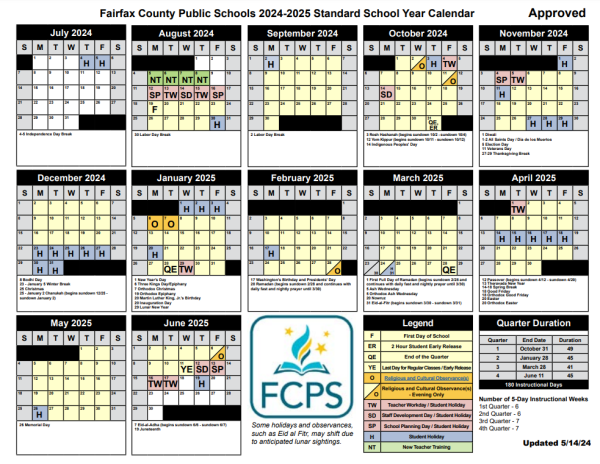HOW ENGLISH CLASSES MAKE KIDS HATE READING

When I was in kindergarten, my class kept a frog as a pet. When I got to high school, I had to dissect one. I’m not against dissecting dead animals for educational purposes. Some students enjoy it; you learn what all the parts of the frog do, where they go, and how they work. But in the process of dissection, you kill the frog. It goes from a living thing, something you can get attached to and feel things for, into a collection of parts to be studied. This is what English classes have done to literature.
English teachers often complain that kids these days don’t read enough. They’re not entirely wrong, however most of us read and write quite often, just not in the form of novels or five-page essays.
Trisha Kwong, Westfield English Teacher, said “Student’s do a lot of reading and writing in the form of texting, which is something we want to recognize and help students get better at because that’s something they’re going to be doing a lot of in the adult world.”
But it is true that most of us don’t read anything long form outside of school because we find it’s not fun, too difficult, or both. Part of that is due to each new generation having a shorter and shorter attention span, but it’s also due to how English classes present the idea of reading. I can’t remember the last time I was asked how a story made me feel, or if I connected to the struggle of the main character, or if I even thought the story was good. Those aren’t the things English class is concerned with. They focus on how well we can identify the themes, the character archetypes, and the plot structures. That’s all very important, but most works of art aren’t made with the sole purpose of being analyzed, they’re made to entertain and elicit emotion. That’s something many English classes forget to teach, and as a result the students forget it as well.
Aaron Sulkin, Westfield English Teacher, said “That’s when we start losing students. When you start testing them on if they can break down mechanically why something is beautiful, of course they can’t! No one can.”
English teachers love to plaster their walls with the quotes of famous authors. Quotes like “A reader lives a thousand lives, a man who doesn’t read lives only one,” George R.R. Martin. Or “I find television very educating. Every time somebody turns on the set, I go into the other room and read a book,” Groucho Marx. These quotes are supposed to remind students that reading is important. Instead what they do is reinforce the idea that the written word is the superior art form, which it’s not. Movies and video games are just as capable of telling thought-provoking stories as books. And books are just as capable of being fun, mindless entertainment. Unfortunately, because many English classes have taught us to view books with such high regard, many don’t know that books like that exist.
Kevin Laub, Westfield English Teacher, said “I always think about the Da Vinci Code, which is not a piece of great literature, but I devoured that book and it was a lot of fun.”
English classes have placed the written word on such a high pedestal above these newer forms of art that many students don’t believe they can reach it. So instead we gravitate towards more inviting mediums.
Collin Thornhill, NOVA Writing Professor, said “Most people, and not just kids, adults too, think of reading as something you should do because it’s good for you, which isn’t the reason you watch a movie. They associate reading with exercise, which not many people enjoy doing.”
Both of the problems stem from a disconnect between English teachers and their students. So what’s the reason for that disconnect? One reason is that all English teachers are English teachers, and none of their students are.
Thornhill said, “Most of the books kids will be reading in English class are chosen by English teachers who all have similar tastes that not all their students are likely to share.”
This disconnect also grows the older the teacher is, which makes sense. Older teachers didn’t grow up with the internet. They don’t have as good an understanding of what it’s like to have thousands of stories vying for your attention all the time. Younger generations also consume media for a much different purpose than previous generations.
Sulkin said, “Newer generations have a much more codependent relationship with media, to distract yourself, which isn’t the healthiest thing, but younger teachers are much better at appreciating that reality.”
So what are some ways we can improve English classes? There could be a wider variety of texts assigned. Instead of picking texts based on their historical or cultural significance, let’s pick texts from more diverse perspectives. Most English classes have already come a long way in this regard.
Kwong said, “When I was younger it was all old dead white guys, and now the books students are reading are a little bit more reflective of themselves.”
But I still think we can do better. Make us read horror stories, funny stories, bad stories, new stories. Show us everything that writing can do, and maybe then, more of us will find the kind of writing that we want to read. Of course you can’t create a new curriculum for every kid, but an easy way to make English classes more suited to each individual student is to give us more choices. It’s important to expose students to works that go outside their comfort zone, but we need to be given the opportunity to find what works for us.
Laub said, “Introducing choice into the classroom is an important way to not kill reading. Find something that you just love, that’s appropriate for you, also while we’re reading this thing from ancient Greece.”
I didn’t write this article because I hate the subject of English. I wrote it because I love the subject, and the people who teach it. So it breaks my heart when I see my peers, adults, and myself reject reading because of these biases that English classes have helped create. We should be proud of the advancements we’ve made, but we should also be aware that we can do better. That goes for teachers and students. It’s even more clear to me now, after interviewing just a couple English teachers, that they love us, they want us to enjoy literature, and they’re willing to make changes to achieve that goal. The least we can do is give some of that love back by participating more in class. Only by making meaningful connections with our teachers can we work together to find ways to improve the way English is taught. Guys, I know it’s hard to believe, but these people really do have our best interests at heart. For the most part.

I’ve got a lot of ideas, too many ideas, so I’m always very active during brainstorming sessions, and when someone else is depending on me to bring...




